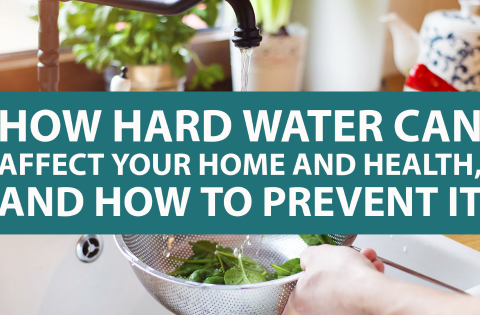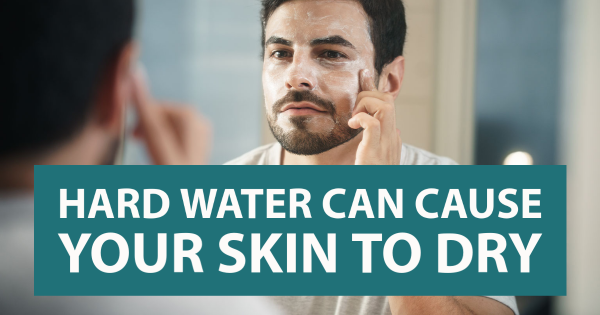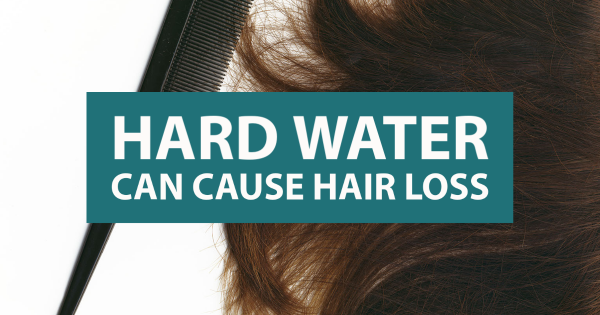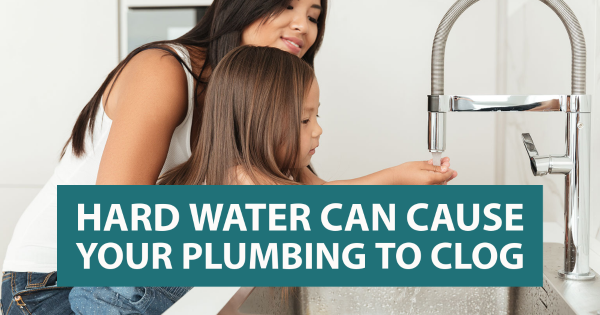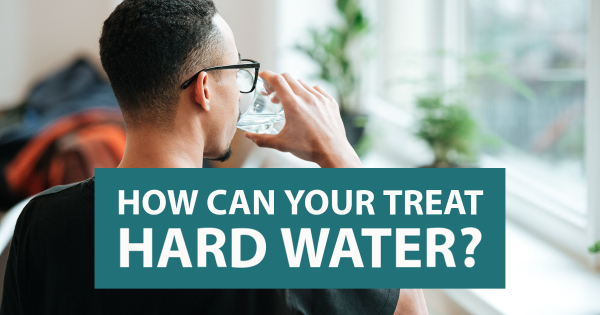Disclaimer: Healthy Lunches. This site provides food and drink content for informational purposes only.
Hard water is a common enemy for any home. Hard water may not be harmful in itself, but can still impact your health and the function of your appliances.
Nearly 85% of homes in America have hard water. So how do you deal with hard water? These steps will outline what it is and how you can contain it.
Hard Water Can Cause Your Skin To Dry
Nobody likes dry skin. However, dry skin caused by hard water can be another story altogether, something that may not be easily fixed by an application of lotion. Hard water can make it really difficult for soap to wash off of your skin, and that soap residue can cause your skin to dry out, leaving you with that dreaded dry skin. To take care of this problem, you may need to seek out dermatology services that can alleviate the issue with your dry skin.
Hard Water Can Cause Hair Loss
Dry skin is nothing compared to hair loss, and that is another symptom of hard water.
Hard water contains an excessive amount of calcium and magnesium, and those are two ingredients that are not good for your hair. Why? Because it can cause dandruff and dryness, which in turn caused hair breakage and, finally hair loss. Hard water can also destroy your hair follicles, which can make them completely dry and brittle. That can also cause hair breakage,m and anyway you put it, hard water is a nightmare for your hair.
Hard Water Can Cause Your Plumbing To Clog
In addition to skin and hair trouble, your pipes will also have a hard time with hard water.
Again, because hard water has a ton of calcium, those deposits can build up in your pipes, and if there’s one thing that pipes can’t stand, it’s build-up. That build-up can cause all sorts of problems for your plumbing, especially clogging it up. If you encounter your water trickling out of your faucet, more-often-than-not, your pipes are clogged, and depending on your level of “do-it-yourself” home fixes, you may need to call a plumber to come and fix your pipes.
Plumbers can be a savior to unclogging your pipes, but you can actually unclog your pipes yourself, especially if you don’t have the money to afford a professional, plumber to come in. There are plumbing tools on the market that you can purchase to unclog your pipes yourself. You can even use shipping to have those tools sent to you. At the end of the day, you don’t want to have clogged pipes in your home. It truly makes for an unpleasant time.
Hard Water Can Affect Your Water Heater
If you live in a cold part of the country, then you can bet a dollar that your water heater is one of the more precious parts of your home. Hard water, unfortunately, can do an undue number on your water heater.
Much like your plumbing, hard water can cause excessive scale to build up at the bottom of your water heater. When this happens, the hard water can actually act as an insulator, which reduces the efficiency of your water heater and cause it to run longer. That will take a toll on your utility bill, which is already expensive in the winter, and an inefficient water heater caused by hard water will make it even more expensive.
If that’s not enough, that hard water buildup can also reduce the lifespan of water heaters, which will lead to a quicker replacement than you originally intended. This sounds bad, but there’s a way you can combat this. Contract an HVAC professional to flush out your water heater every other year to ensure that water buildup doesn’t cause unneeded problems with your water heater.
Hard Water Can Cause Problems With Your Toliet
Imagine: You go to use the bathroom, and when you flush your toilet, you see that the water hasn’t risen to the spot where it needs to be.
This is something that you should not ignore, as it is another sign of hard water wreaking havoc in your home. The holes that are in your toilet rim allows for the water to flow, but scale buildup thanks to hard water can cause those holes to clog up, which in turn will cause your toilet to not flush the way it should, even not flushing completely. This is where you have to break out a plunger, and it will not be a pretty time.
Hard Water Can Cause Hardness In Your Sinks And Bathtub
If you ever wondered what that buildup was in your facets for your skins and bathtub, that, friends, is hard water.
The hard water in your sinks and tub mesh faucets and drains can cause a visible hardness to buildup, and when that happens, it can prevent the water from flowing the way it should flow. Over time, you’ll also see scum that will form around tiles, shower doors, and tub sides, and those will be super hard to remove.
Not Even The Dishwasher and Washing Machine Is Safe From Hard Water
It seems that hard water can affect everything in your house, and it certainly can. Not even your dishwasher and washing machines are safe from hard water.
For dishwashers, hard water can cause a white residue to buildup within the appliance, and you can see it actually form on the racks and the dishes within the dishwasher. To combat that problem, you need to see where the hard water is coming from. Or, you can use a detergent that’s is used for this purpose to wash your dishes.
As for washing machines, that hard water deposit can clog and block the fill screens and the fill valve within the machines. These are the places where the hot and cold water lines connect, and the result of this is putting the washing temperature at a higher level and using more detergent to ensure your clothes get cleaned. This will cause more money to spend, both on detergent and in utility costs as you’re using a higher temperature, which can put a damper on your energy bill.
Hard Water Can Affect Your Fridge
Nope, not even the refrigerator is safe from the scourge of hard water, as there are parts where it can really affect your appliance’s efficiency.
The main issue here is preinstalled water filters, which remove the mineral deposits from the water. However, if you don’t change the filters, they can become ineffective over time, which can allow hard water to build up in the ice maker and water dispenser. How can you tell heard water has affected your fridge? If you get ice and it looks cloudy, the water flows slowly, and it tastes terrible, that’s a sign that hard water has made its mark on your fridge.
So make sure that you’re changing out the water filters within your fridge to ensure that hard water doesn’t make its mark there, and you can have great looking ice and great tasting water.
How Can Your Treat Hard Water?
We’ve talked at length about the effects that hard water can do, not just on your body but also on your home.
It may seem like a lose-lose situation, but there are ways in which you can defeat hard water. One of the best ways is to soften the water by using water softener systems. Water softeners can help treat the hard water in your home by removing the minerals that cause it to go hard in the first place. There are other ways to prevent hard water from becoming an issue, another of which is your basement.
While you’re doing basement renovations, you should move to waterproof your basement. This will prevent the walls within your basement from taking on and absorbing water from the outside, thus preventing minerals from getting into your water supply and causing it to go hard. Basement waterproofing can really make a difference in your water supply staying soft.
Soften Your Water
As we explained earlier, the main enemy of hard water is soft water, and that can make a dramatic change in how your water functions within your home.
Hard water can do a lot of damage both to your and your pipes and appliances, which is why you should do whatever you can do to soften the water by using systems and products designed to get the minerals out. You will see a stark difference in how your water interacts with you and your home.
Soft water creates a healthy lather that will make washing clothes, dishes, and yourself feel smoother and better. Your clothes will come out much cleaner with soft water than with hard water and there will be no mineral stains that come of it, which prevents damage to your clothes. The water pressure will be much healthier and flow better, and the water will taste better.
These are the great aspects of soft water, which is why you should keep your water as soft as possible.
In conclusion, having hard water in your home is something that can affect your home and your health.
It is something that develops over time within your pipes, and it can cause a lot of nuisance headaches for you and your family. For starters, it can cause your skin to dry out, and no one likes dry skin. Even worse, it can cause your hair to dry up, which leads to hair breakage and, eventually, hair loss, and that combine with dry skin is not something that you want.
In addition to causing damage to your skin, hard water can be even worse to your pipes and appliances. Hard water can cause your pipes to clog up, which presents problems that you don’t want to deal with. Also, it can get in your water heater, which will prevent it from running efficiently and could cause your utility bill to go up and a time when you can least afford it. If this happens, call a plumber to check and unclog your pipes, or you can do it yourself with plumbing tools meant for clogging pipes.
For your water heater, make sure that they’re getting flushed out ever-other-year so that the water won’t fill up and cause it to run inefficiently. Don’t ignore the signs of hard water in your bathroom. This scourge of water to present itself in several ways, from clogging your toilet to creating a hard-to-clean scum that all the elbow grease in the world won’t be able to get out.
Hard water can also make itself know in your kitchen and washing area. Again, if you see cloudy ice and the water taste bad, chances are hard water is in the system. Hard water in your dishwasher can cause spots to form on your dishes and push you to buy more expensive dish detergent. Hard water can also cause damage to your clothes in the washing machine and also cause your utility bill to go up thanks to using hotter water.
The main way to combat hard water is to soften it by getting the minerals out. That way, you can see the benefits of soft water and not have to deal with hard water, at least for the time being. It’s just one of those things that you have to keep on top of to make sure that the water in your home stays soft and allows your appliances to work the way they should work.
No one likes hard water, so make sure that you rid your home of it as soon as it shows up.
